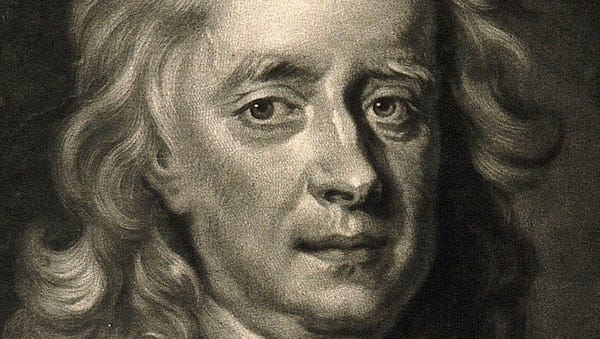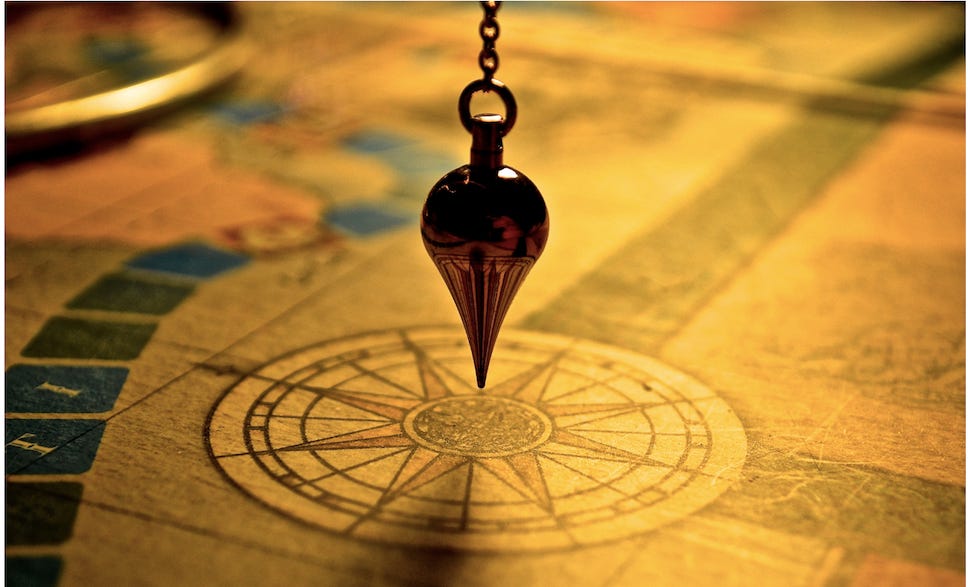Isaac Newton (Small Works List)
Let me tell you something from the jump here, I am not a scientist. I pulled the name Isaac Newton from the Small Works List because, you know, whatever and I called an astronomer that I know, Stephen Case, and asked him what do I have to read to get to know Isaac Newton. Newton wrote prolifically in his life, but the main thing he wrote was the Principia which is a 400 page ancient math text book. I thought I might read this. He said no. He gave me an abridged version that breaks it down into his physics stuff which was 70 pages. I read 20 pages of this and stopped. I am not a physics person. I then found a copy of the Principia whose whole edition is 900 pages long with 400 of which the manuscript itself. I looked at every page of this text for longer bits of prose in between the math stuff. This was still impenetrable.
I found two sections worth reading, one the Scholium in between Book 2 Section 6 and 7. Here he talks about how he set up his experiment with wooden balls and 10 feet of thread. Also, he dropped some of these balls of the top of St. Paul’s Cathedral in London, 220 ft high. They used hog bladders for this, and one was too wrinkly to be considered part of the data. Newton had some strange ideas but his math works out and that is what he is remembered for. This man could not have existed in the internet age which raises some interesting questions about the types of ideas we find receptive.


Comments
Post a Comment